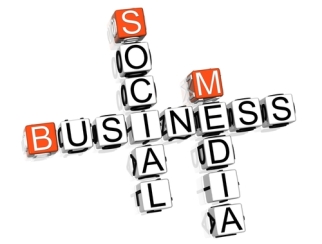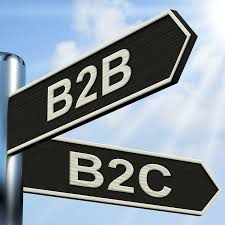In this post I’m going to look at the various ways social media are used by businesses, both large and small.
There has been lots of research done about the importance of social media in business and there are a myriad of statistics available but I’m not going to bore you with those! If you’re really interested have a look here.

The main conclusion to come out of all the research is that businesses, especially small businesses, need to have a presence on social media platforms if they are going to be able to compete in the world market, or even local markets.
Before social media and the internet came along, if you wanted some building work done, you would look at the yellow pages in a telephone directory, or maybe adverts in a local newspaper. Now it is increasingly common for people to search for businesses on the Web, and especially on Facebook and other social media platforms.
The advantages of social media use by businesses include an increase in customer enquiries leading to an increase in revenue. However, research suggests that just having a presence on social media does not make a difference on its own (Casserly, 2013). Time must be spent on searching for information about other service providers. This includes looking at complaints by customers about your competitors and possibly offering those customers your products or services instead.
Conversely, if customers are complaining about your business, you need to deal with this as quickly as possible before the complaints spread and possibly do irreparable damage to the reputation of your business.

While large businesses may have the staff and budget to have a team dedicated to monitoring and posting on social media sites, it is more difficult for small businesses to do so in terms and time and cost.
The costs involved are not only employees’ time, but also the need for reliable internet connections and security against increasingly sophisticated cyber attacks.
The increasing use of social media on mobile devices, such as smart phones and tablets, has led to much more targeted advertising. These devices incorporate location and time-sensitive apps that allow the user to quickly locate, for example, restaurants or hotels close to their location. They can also tell the user whether a business is currently open and what time it will close based on the time-sensitivity of the app.
Most of the above points apply to both B2C (Business to Consumer) and B2B (Business to Business) marketing. There is however, some difference in the ways these types of organisations use social media. B2C marketers tend to use more casual content with heavy reliance on platforms such as Facebook, Twitter and YouTube. They use a lot of visual marketing material, including videos to reach their target market.

B2B marketers, on the other hand, are more formal in their approach to lead generation, that is, gaining interest in their product. White papers are often used to give an in depth explanation of a product or service. The most common social media platform for B2B marketers is LinkedIn.
More information about the differences between these two types of marketing can be found here.
Reference
Casserly, M. (2013). Why Small Businesses Are Losing On Social Media. Forbes.com, 31-31.
Continue reading “How Do Businesses Use Social Media?”
